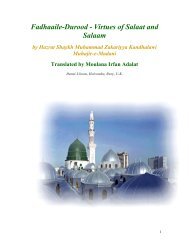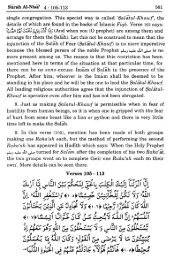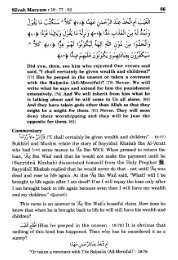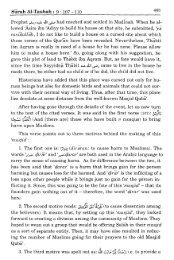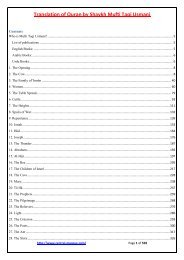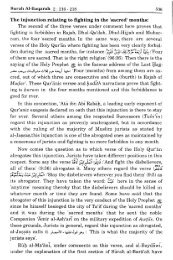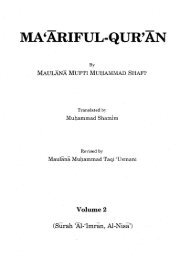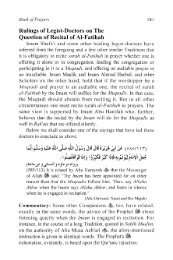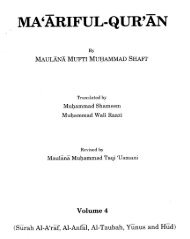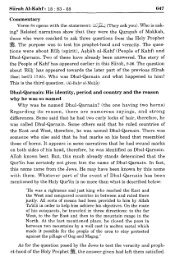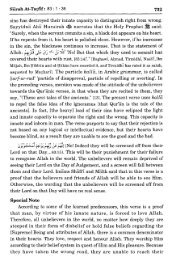Maariful Quran - Mufti Shafi Usmani RA - Vol - 7 - Intro And Page
Maariful Quran - Mufti Shafi Usmani RA - Vol - 7 - Intro And Page
Maariful Quran - Mufti Shafi Usmani RA - Vol - 7 - Intro And Page
Create successful ePaper yourself
Turn your PDF publications into a flip-book with our unique Google optimized e-Paper software.
-the day of Judgement, parents will intercede on behalf of their childrenand the children on behalf of their parents. Then, this intercession will>>'~d' ,,'.,~\,turn out to be successful as well. Says the Qur7Zn: eJi ,++, d, ,$;: ,&mi , dL;.b (<strong>And</strong> those who believed and their children followedthem in belidf, we will join their children with them - 52:21) even thoughtheir deeds may not match the ranking of the deeds of their parents, butsuch would be the barakah of righteous parents that they too would bemade to reach where their parents are. But, this is subject to the conditionthat the children should be believers - even though, their deeds may havesuffered from some shortcomings.> fi6 >j &$2 dG &Similarly, in another verse, it was said: &I;)&$ij ,+jjj (the eternal gardens they enter, and the righteous Af theirfathers, spouses, and progeny as well - 13:23). Qualification refers here totheir being believers.Both these verses prove that, should parents and children and, in thesame way, a husband and wife, share the common denominator of beingbelievers, then, they will receive benefit from each other even on the dayof Judgement. Similar to this, there are several narratives of Hadithwhich report children interceding on behalf of their parents. Therefore,this rule set forth in the present verse (33) - that no father can bring anybenefit to his son and no son to his father on the day of Judgement - canbecome operative only in a situation when one of them is a believer whilethe other, a disbeliever. (Mazhari)Special Note:Here, it should be noted that the statement declaring the inability of afather to bring benefit to his son (&; 3 2 s Y - 3) has been madethrough a verbal sentence, but two changes were made while mentioningthe other side of it. Firstly, it was described in the form of a nominalsentence. Secondly, the word: >Jr (maulEd) meaning the born one, thatis, a son, was employed instead of (d, :walad) which is more common for'son.' There is a wise consideration at work here. A nominal sentence ismore emphatic as compared to a verbal sentence. By this change in thesentence, a hint was released towards the difference between a father andhis children. The love of a father with his children is more intense.Contrary to this, the love of children does not reach this level of intensityeven in the mortal world. However, the likelihood of either of the two



